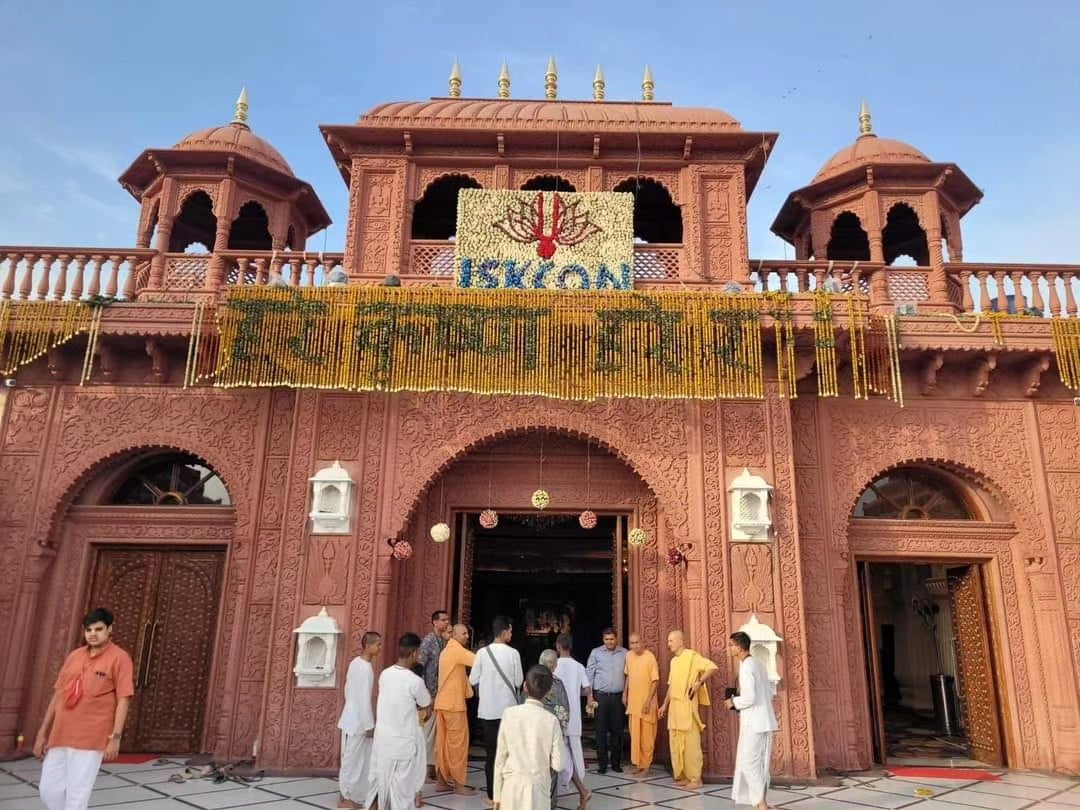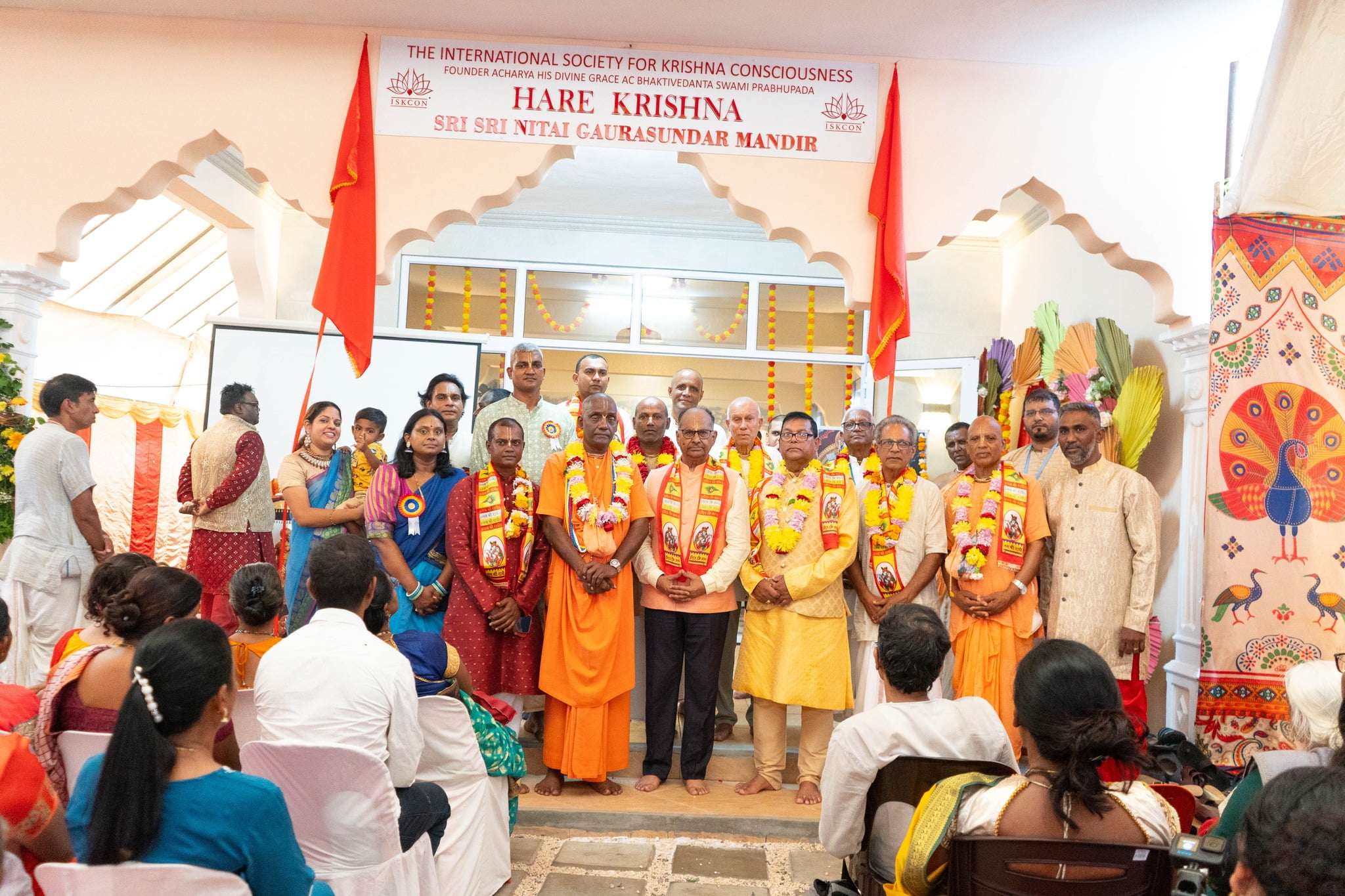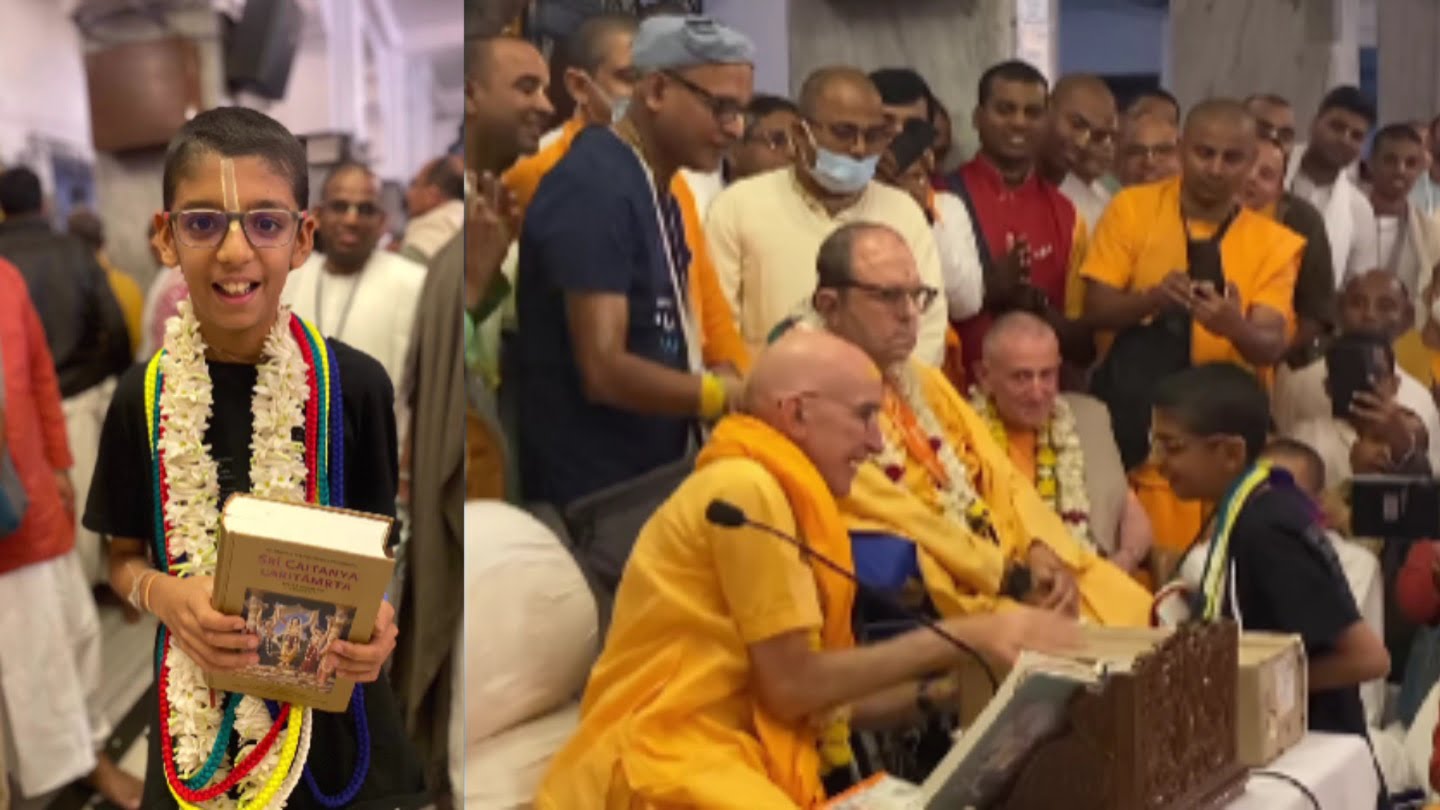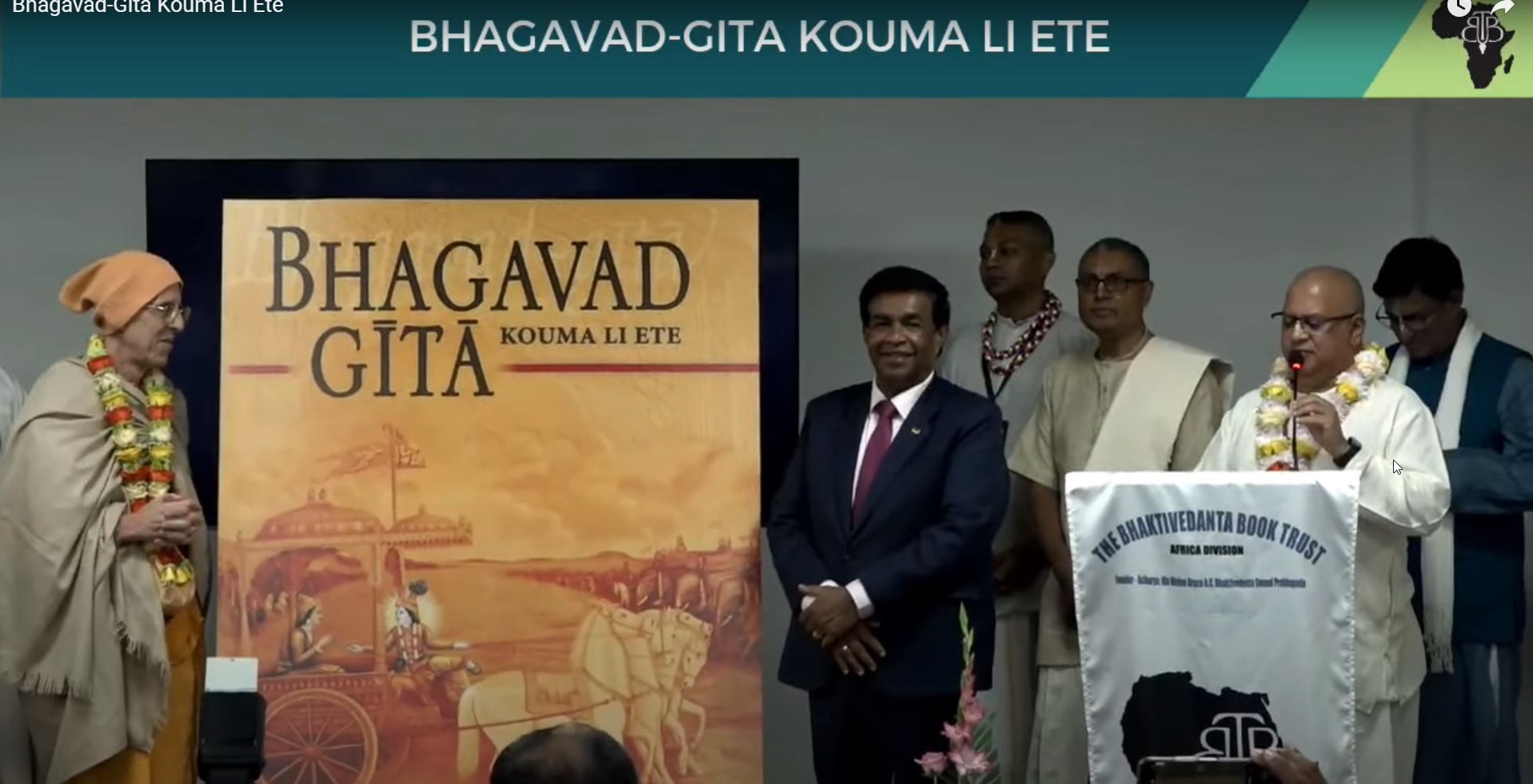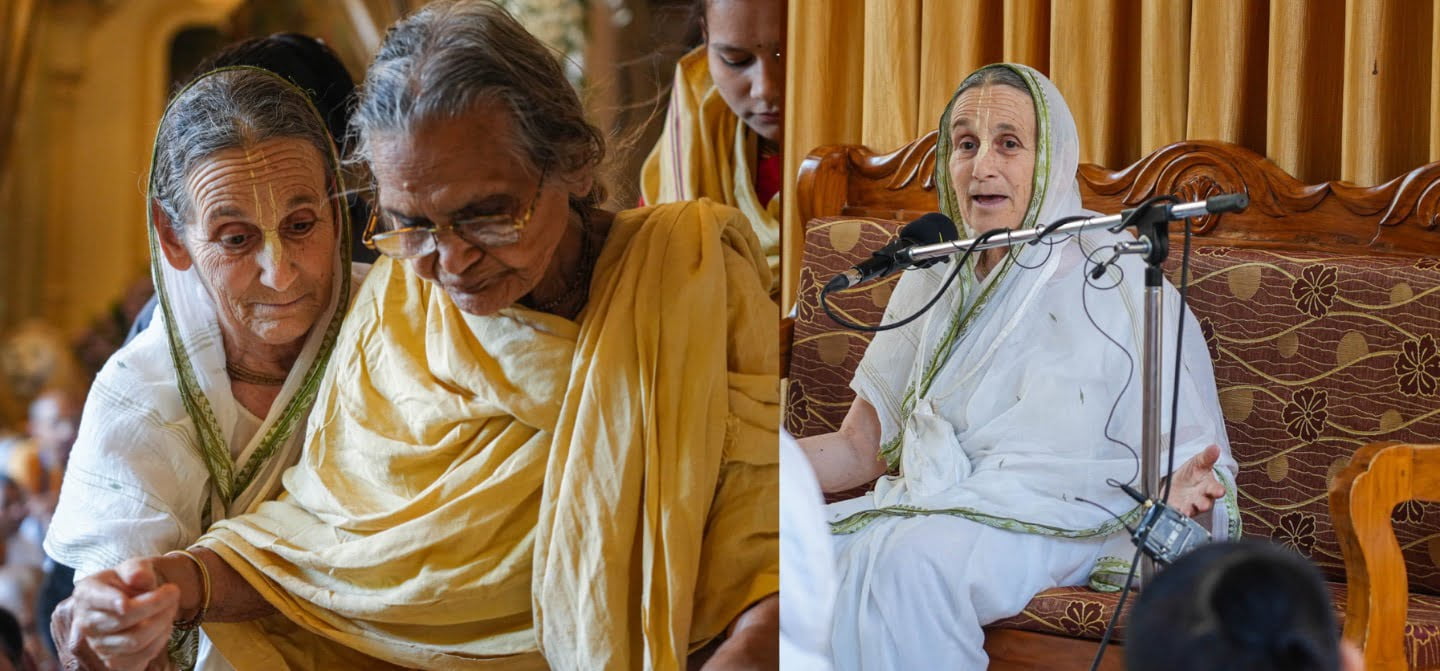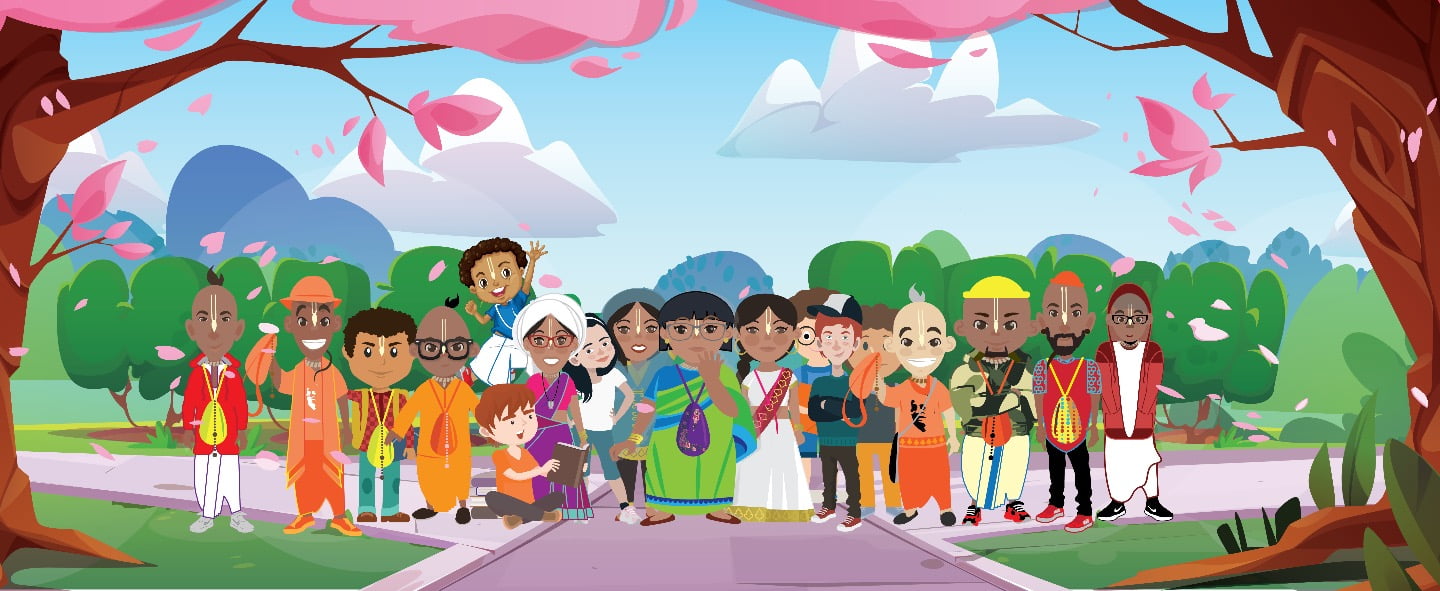Ahimsa Foundation to Certify All ISKCON India Cow Protection Projects
By Madhava Smullen | Mar 13, 2014
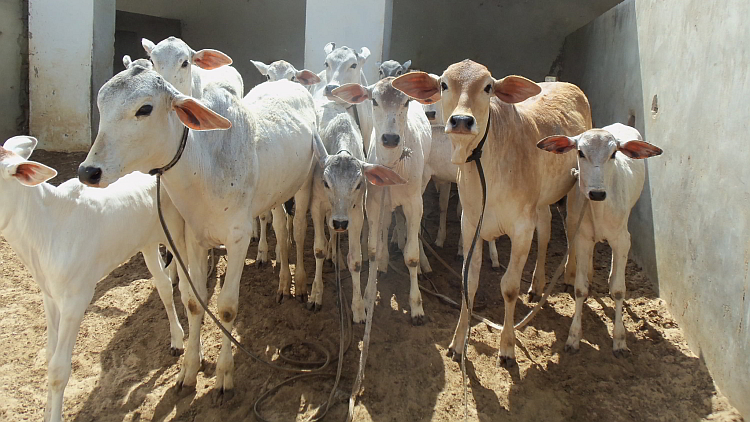
The Ahimsa Foundation For Cattle Protection (AFFCAP), an organization started in 2012, has developed a certification process for all ISKCON India cow protection projects, or goshalas.
In December 2013, the ISKCON India Advisory Council agreed to recommend AFFCAP certification for all the ISKCON goshalas in the country.
AFFCAP is now in the process of refining its certification process, and is already certifying many goshalas for a basic standard of care and protection.
While it’s a non-profit third party organization, independent from ISKCON, AFFCAP is the brainchild of ISKCON Jaipur temple president Pancaratna Das, who is its Managing Trustee. Working with him is Executive Secretary Vyapaka Das, originally from Canada, who worked as a farm inspector in the organic foods industry for 15 years.
Also on the board of trustees for AFFCAP are Basu Ghosh Das, temple president of ISKCON Baroda in Gujarat; and Revati Raman Das, temple president of ISKCON Tirupati, Andhra Pradesh.
They are joined by three accomplished businessmen who are very dedicated to the service of the Lord: Durga Singh, a Rajasthani Maharaja who runs a successful tourism business; jeweler Raju Lashkerry, and architect Peeyush Gupta.
“The purpose of ISKCON’s affiliation with AFFCAP is to ensure that no animals are going missing from any ISKCON farm or temple,” says Pancaratna Das. “In that way we ensure that ISKCON is not responsible for the slaughter of any animals.”
“Once you join AFFCAP,” he explains, “You cannot give away or sell animals to a non-AFFCAP farm or entity. You must keep all the animals you breed or transfer them to an AFFCAP farm only. Every birth and death must be registered. In this way we know exactly how many animals there are in ISKCON and where they are at any given time.”
Applicants to AFFCAP pay a one-time fee of 2,500 rupees. They then fill out a membership registration form which asks for the number of each kind of animal they have — cows, bulls, calves, milking cows, retired animals etc; a map of feeding, exercise and housing areas; and details of water sources and feeding rations.
Applicants are also required to answer many different questions such as “Are all the animals in your organization being maintained for life?” “Is euthanasia ever performed on sick animals?”, “Are daily herd counts and health checks being performed?” etc.
In addition they must read AFFCAP’s Cattle Protection Standards, which lists recommended, restricted and prohibited items in 12 categories including Protection, Shelter of Animals, Feeding, Milking, Training Oxen, Breeding Standards, and more.
Applicants must also fill out an Application for Animal Registration, a short form which asks for birth, name and history details for each animal. After registration, an identification number is assigned to the animal so that AFFCAP can keep track of it throughout its life and make sure it isn’t transferred or sold to a non-AFFCAP farm.
Onsite inspections are also done before certification, with follow-up inspections at least once a year to make sure standards are being kept.
Vyapaka Das carries out these inspections. He can tell from the number of milking cows, calves and bulls, if the goshala is likely to be selling some of their animals.
“I also take a quick look at the conditioning of the cows; if all the cows are just skin and bones, that tells you a lot,” he says. “And we look at fencing; can the cows just wander out, and are they secure from theft?”
Once certified, goshalas become part of the protected herd of India. Vyapaka feels that it’s important for ethical cow protectors to work together, as India is now the largest exporter of meat in the world, with a disturbing 30 per cent of that being beef.
So far, AFFCAP has certified or is in the process of certifying forty to fifty Goshalas. These include ISKCON goshalas in Vrindavana, Kanpur, Ahmedabad, Mumbai, Baroda, Tirupati and AFFCAP’s hometown of Jaipur, which cares for 40 Tharparkar purebreds.
Although most AFFCAP-certified goshalas are currently ISKCON-owned, being part of ISKCON is not a requirement. In fact, it’s expected that in a couple of years ISKCON goshalas will be in the minority.
“Just in Rajasthan — probably the leading Indian state for cow protection — there’s about 1,500 to 2,000 goshalas,” Vyapaka says. “So we want to try and go as widespread as we can.” He describes one goshala in Jodhpur that maintains blind, lame and cancer-afflicted cows for life.
AFFCAP may also go international, with devotees in Mauritius and the UK already showing interest in applying for certification.
In the meantime fundraising is a priority — the 2,500 rupee registration doesn’t even come close to covering costs — as is making sure bulls are engaged in productive work.
“If we really want to fulfill Srila Prabhupada’s vision for cow protection, we have to engage the bulls,” Vyapaka says.
For more information, please visit http://affcap.org/



